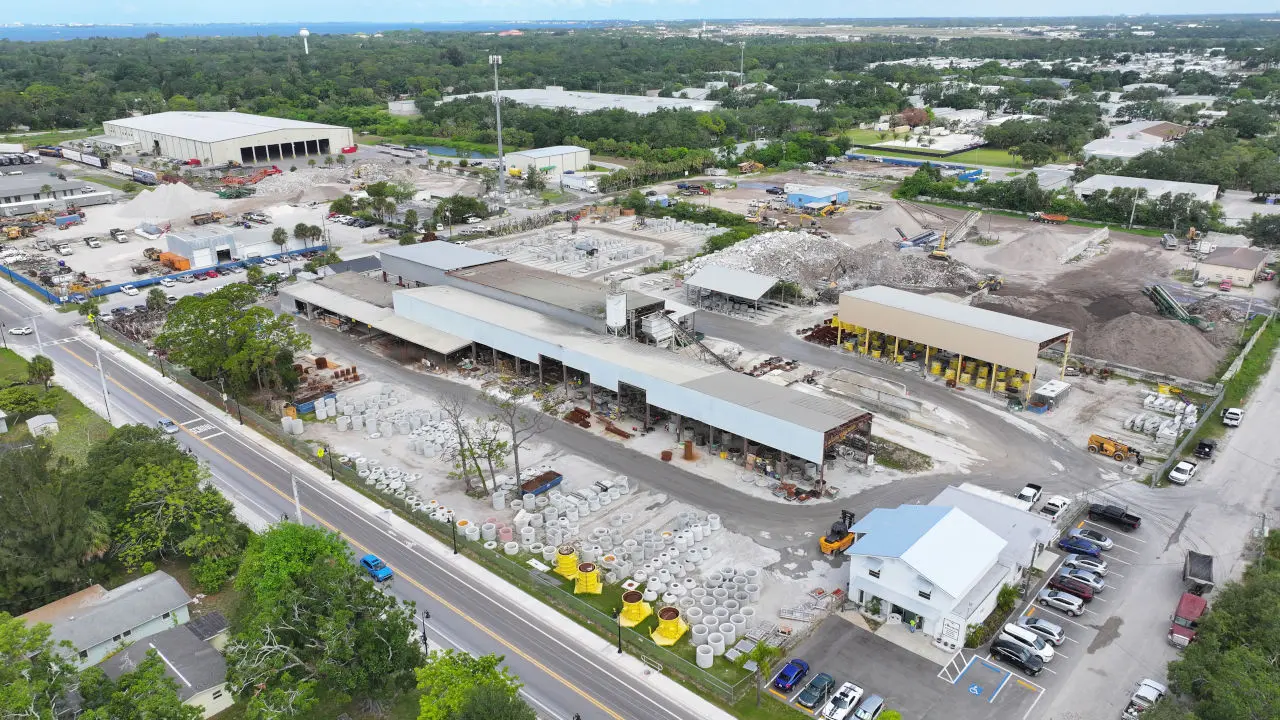
Originally Featured in in the July-August 2024 issue of Sarasota Magazine
“Construction has always been predominantly male, but it doesn’t have to be. There’s a lot of work to be done, and women can do it.”
In 2011, Pennsylvania’s Atlantic Concrete Products announced plans to close its Sarasota precast concrete business, which had been operating out of a 7-acre property on Myrtle Street since it opened in 1976. The construction industry had taken a hit in the wake of the Great Recession, and the Sarasota plant was on the chopping block.
That’s when Megan Kitchner stepped in. Her family founded the Sarasota business, and she started working at the plant at age 16. She was able to scrape together enough money to buy the plant, and she christened it with a new name: Atlantic TNG, LLC. Kitchner chose the acronym “TNG”—a popular nickname for the show Star Trek: The Next Generation—as an homage to her father, a sci-fi fan, and to reinforce the company’s commitment to moving forward while helping employees grow and thrive.
Thirteen years after the near-closure, Kitchner, who is today both Atlantic’s owner and general manager, has grown the business from 10 employees to 120 and expects to bring in $40 million in revenue this year.
Precast concrete is an essential component of modern infrastructure. Atlantic TNG pours concrete mixes into customized molds and then allows them to cure before transporting the sometimes-enormous structures to job sites as far away as 200 miles. Every day, the company creates approximately 150 new concrete products and ships out between 15 and 18 truckloads full of them. Many of the company’s products are buried underground and invisible to the average person, but they are crucial elements in projects like highway interchanges, the Legacy Trail, sewage and stormwater systems, shipping and manufacturing facilities and more. The National Precast Concrete Association doesn’t keep formal data on the number of women in the industry, but Kitchner estimates that when she started on the job, women made up roughly 10 percent of the workforce. Today, she says, that’s much higher.
“Year after year, the demographics are changing,” she says. “I’m seeing a lot more women.” She credits that shift to an increased emphasis on STEM education for young girls and a general feeling that women aren’t as “intimidated” by the construction industry today. For young women starting out in the field, she suggests getting involved with industry trade groups to network and find out about opportunities to advance in their careers. “Construction has always been predominantly male, but it doesn’t have to be,” Kitchner says. “There’s a lot of work to be done, and women can do it.”
Jun 26 2024
Written By Cooper Levey-Baker